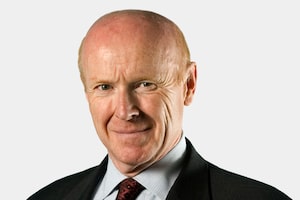As we look ahead to 2011, it's easy to get caught up in bad news from the United States, Europe and Japan - including painfully slow growth, stubbornly high unemployment, persistently low housing prices and alarming deficit and banking problems.
If all the negative headlines tempt you to invest next year's RRSP contribution in a couple of cases of Glenfiddich, consider these three good news items.
Optimistic CEOs
The Business Roundtable recently issued a report showing the most optimistic outlook among U.S. chief executive officers in almost five years, and forecasting 2011 as a year of higher sales, greater investment and expanded hiring.
Eighty per cent of respondents say they expect increased sales in the next six months, up 14 per cent from three months ago. Almost half said they plan to hire staff, also a 14-per-cent increase from last quarter. And 59 per cent said they plan to spend more on equipment, up 10 per cent.
While this doesn't suggest that the U.S. economy is out of the woods, it does offer a stark contrast to those who foresee nothing but doom and gloom for the world's largest economy.
A recent report indicated similar optimism among Canadian CEOs. And the positives don't end there. For 2011, the World Bank forecasts rising investment and private consumption around the world - as well as strong growth in little noticed economies like Indonesia and Turkey.
Spending on innovation
In a thought-provoking new book The Rational Optimist: How Prosperity Evolves, Matt Ridley makes the case that innovation should lead to optimism.
Bill Gates reviewed this book in The Wall Street Journal, pointing out that throughout history innovation has consistently overcome predictions of a bleak future. "Pessimism is so often wrong because people assume a world where there is no change or innovation," Mr. Gates wrote. "They simply extrapolate from what is going on today, failing to recognize the new developments and insights that might alter current trends."
Today, we're seeing strong expenditures on innovation around the world. Countries such as China and India are making massive investments in research and development - China, in fact, is expected to file the second largest number of patents, after the U.S., next year. That's remarkable when you consider that 20 years ago China had no history of protection of intellectual property.
Another factor driving the positive impact of innovation is the Internet's role in disseminating information about new developments. By allowing people around the world to share new information and discoveries in real time, you dramatically increase the returns on investments in innovation.
Leadership in education
A U.S. report last spring ranked Canada first out of 36 countries in the percentage of 25- to 34-year-olds with college degrees. Next in line were South Korea, Russia and Japan. In contrast, the U.S., at one time the leader on this metric, had fallen to 12th spot.
In July, a New York Times article discussed how this trend threatened to undermine American economic competitiveness. In the words of the report's sponsor: "The growing education deficit is no less a threat to our nation's long-term well being than the current financial crisis."
Given the critical importance of an educated work force, our global leadership on this is hugely positive for Canada. In fact, the goal suggested for the U.S. was to get to 55 per cent by 2025 - behind where Canada sits today.
A marathon not a sprint
It's often said that when it comes to investing, success is a marathon not a sprint. The truism "slow and steady wins the race" really does apply.
The same is true as we examine prospects for renewed economic growth across the developed world. It won't happen overnight, but the good news is that CEOs in Canada and the U.S., scientists around the world and Canada's youth have put on their running shoes and are embarking on a journey that will carry us all forward
 Dan Richards
Dan Richards